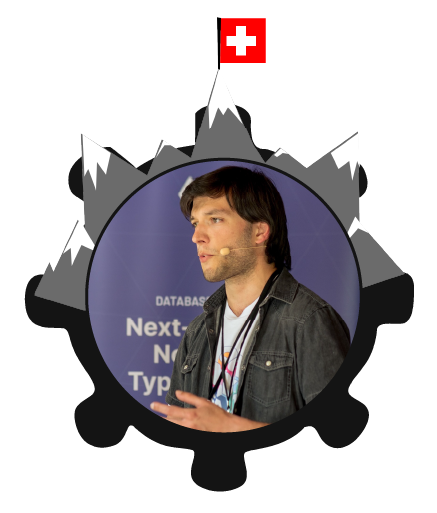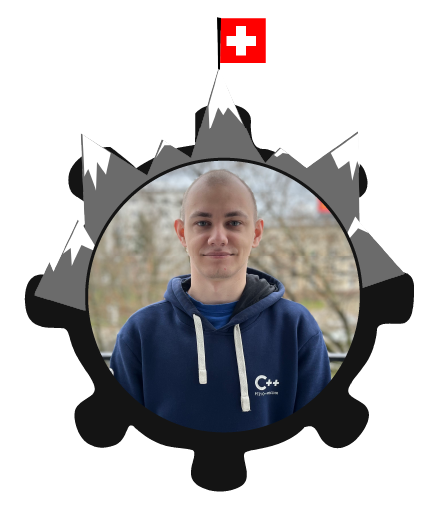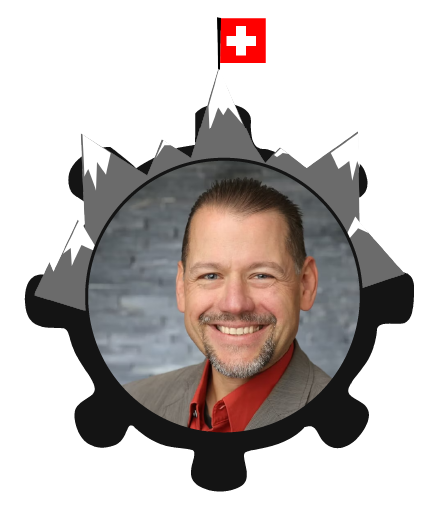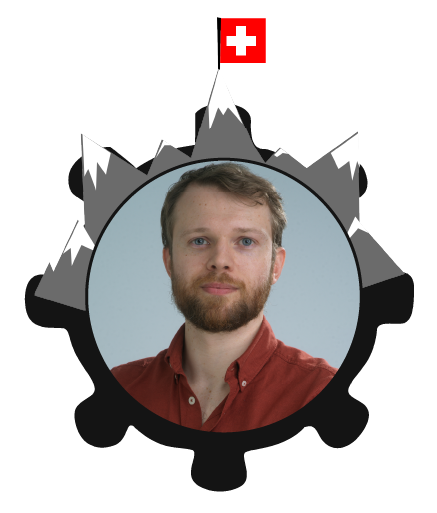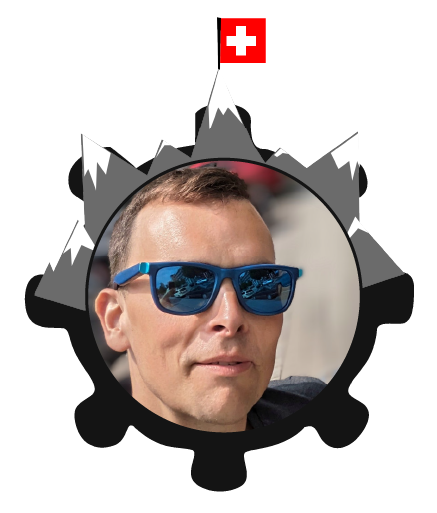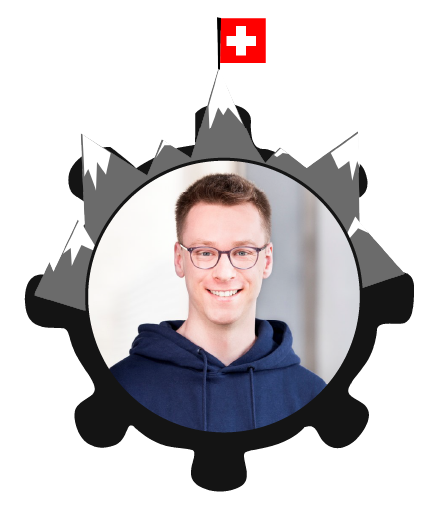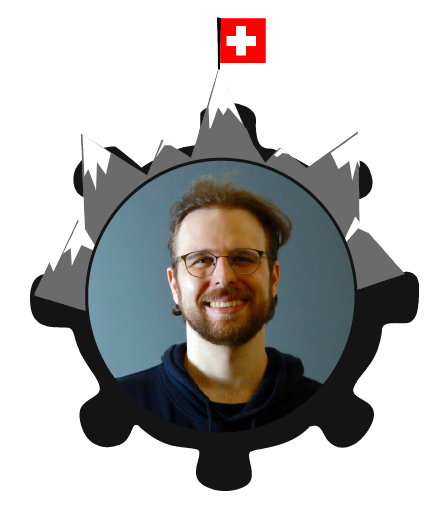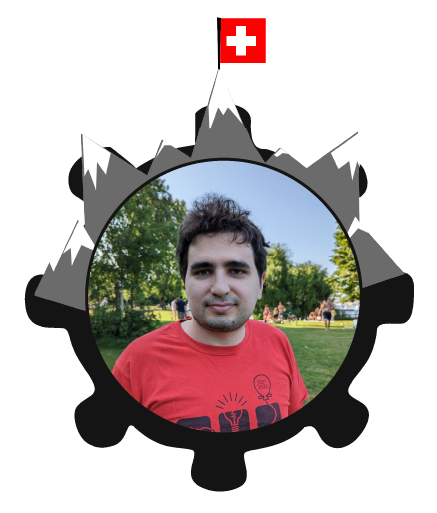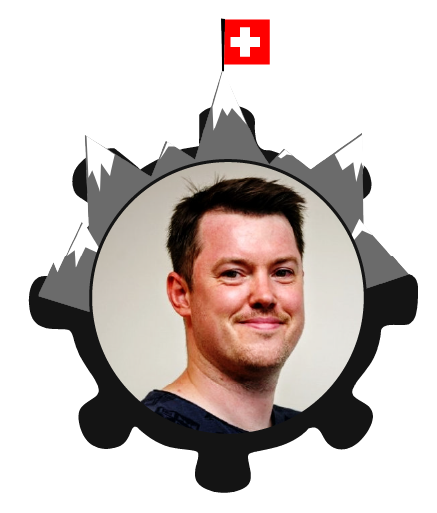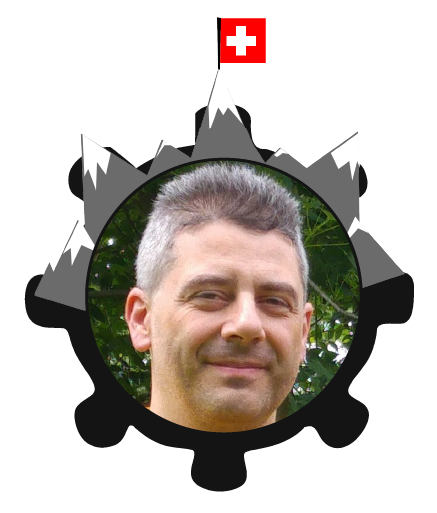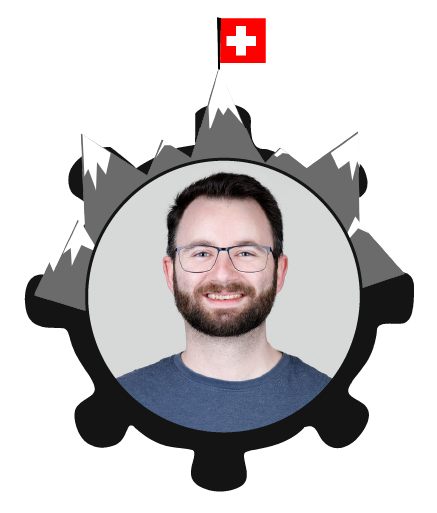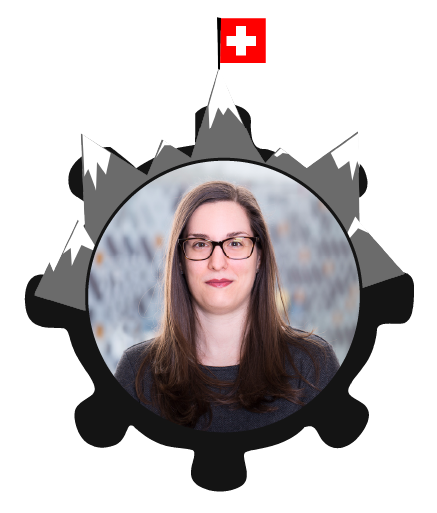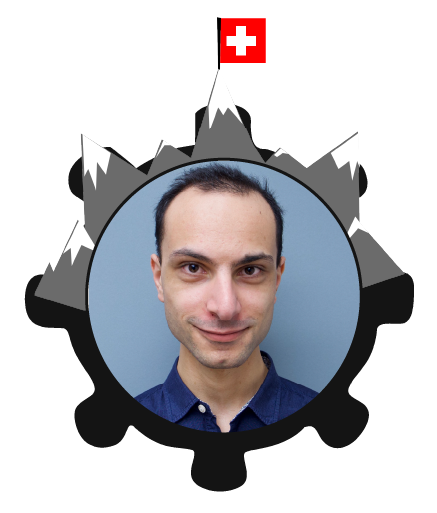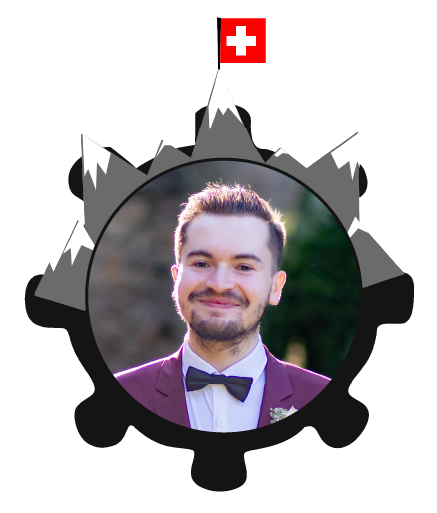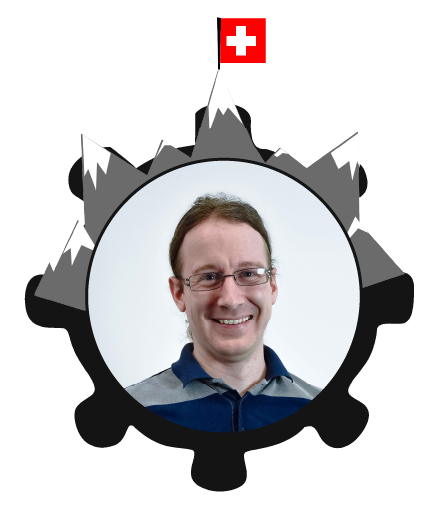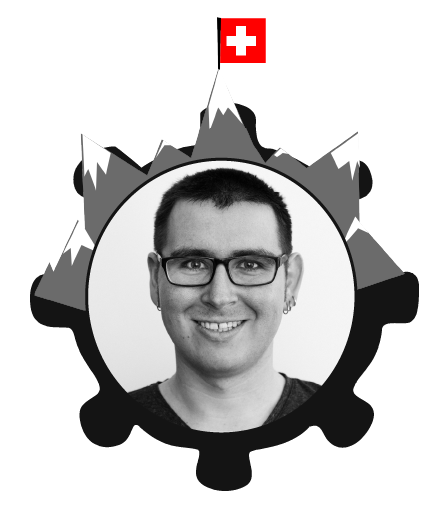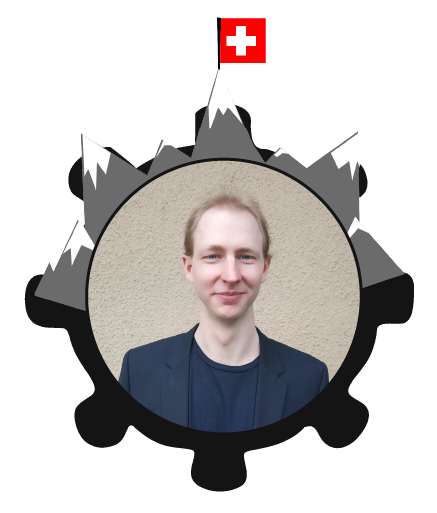Speakers
Alberto Schiabel
Speaker for “Towards Zero-Copy Binary (De)Serialisation: TypeScript <-> Rust”
Alberto Schiabel is a senior software engineer and former startup co-founder. He has 7+ years of industry experience, and he’s into typed functional programming. He’s currently part of the open-source Schema Team at Prisma. He mainly writes in TypeScript, but has previously spent a few years using C++ and Haskell professionally as well. In his free time, he helps juniors finding their first job in tech.
Aliaksandr Zaitsau
Speaker for “Profile-Guided Optimization (PGO) in Rust: unknown parts”
In the past, I used to be an active C++ user and contributor, but now my coding skills are a bit Rust-y. People at work call me “Solution architect” but I prefer “Confluence && Draw.io engineer”. I like performance, crazy about optimizations and making optimizations as friendly as possible for humankind.
Andre Bogus
Conference MC
Andre “llogiq” Bogus is a Rust contributor and Clippy maintainer. A musician-turned-programmer, he has worked in many fields, from voice acting and teaching, to programming and managing software projects. He enjoys learning new things and telling others about them.
Ben Ruijl
Speaker for “Developing a computer algebra system in Rust”
I have been using Rust full-time since 2017 to design software that makes predictions for the Large Hadron Collider at CERN. During my PhD and 5-year postdoc at ETH, I designed computer algebra programs that can handle massive computations involving expressions with millions of terms that can easily take up a terabyte of memory. This specialized software is based on programs from the 1990s, which are hard to use, and very hard to maintain.
Bernd Kaiser
Speaker for “Targets Acquired: Rust builds for everyone, courtesy of GitHub Actions "
Bernd Kaiser works as a full-stack software engineer at inovex. After studying computer science with a focus on IT security, he made a short excursion into the world of finance, only to return fully to the world of the Internet. In the process, he brought music effect devices into the cloud, roller coasters into the App Store and virtually united patients with their therapists. Many of his projects used JavaScript (later Typescript), and even after more than 20 years, there’s still no end in sight.
Hendrik Sieck
Speaker for “Using Rust for Playing Soccer With Robots at RoboCup”
Hendrik has a Master’s degree in Computer Science and in his professional work he engineers the software for embedded systems in C++ and Python. Beside his education and work, he did countless projects in his spare time to build up a very broad experience. For nearly 5 years, he participates in the RoboCup Soccer Team HULKs where he worked on moving a large C++ code base to Rust.
Jan Hohenheim
Speaker for “Modern Game Development using the Bevy Engine”
Jan Hohenheim worked in the software industry as a programmer, project lead and Scrum master. He wrote a book about Rust for Packt Publishing called “The Rust Standard Library Cookbook”. He is currently a member of the Institute of Neuroinformatics of the UZH and ETH Zurich. He spends his free time developing games with the Bevy engine, for which he has contributed numerous open source tools. He also volunteers for the Rust gamedev working group.
Luca Versari
Speaker for “High performance code and the cost of safe code”
Luca Versari (he/him) obtained a Ph.D. degree with the University of Pisa, Italy. He is one of the main authors of the JPEG XL format. Other notable contributions are writing the fastest-known PNG and JXL lossless encoders, and contributing to an attempt to port Rust’s lifetime annotations to C++.
Martin Geisler
Martin is working at Google as a senior software engineer where he supports Rust in the Android Platform (AOSP). As part of this work, Martin wrote and published a set of open source Rust courses called Comprehensive Rust. The classes are taught both internally at Google and externally by other companies.
Before joining Google, Martin worked on the Mercurial version control system as well as many other open source projects.
Martin Mosler
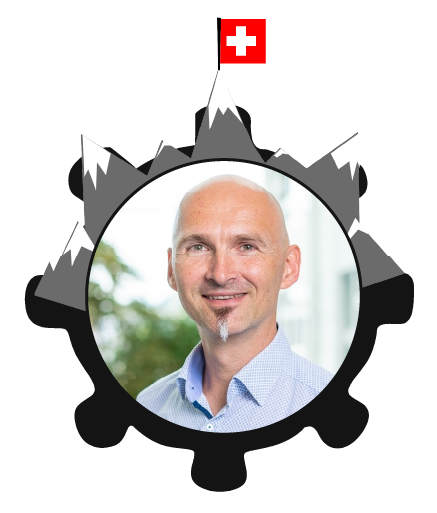 Martin works at Zühlke and is an analog monad on the mission of oxidising undefined behaviour.
He has several years of experience in the embedded Software Development industry including a wide range of systems design and programming experiences.
Specialising in low level (embedded) software design using multiple language paradigms having a deep understanding of security protocols and how they are used.
Martin works at Zühlke and is an analog monad on the mission of oxidising undefined behaviour.
He has several years of experience in the embedded Software Development industry including a wide range of systems design and programming experiences.
Specialising in low level (embedded) software design using multiple language paradigms having a deep understanding of security protocols and how they are used.Massimiliano Mantione
Speaker for “Ferris wins a Folkrace!”
Passionate software engineer, I have worked on implementing telecom switching stations, the Mono JIT compiler, the Unity3D game engine, the V8 Javascript VM at Google, a collaborative virtual reality system on the web, and blockchains. Currently, I am working on operational research applied to logistics at scale in WorkWave.
Matthias Farnbauer-Schmidt
Speaker for “When to (not) use typestate”
I started learning Rust in summer 2018 and used it for my masters thesis. Since 2021 I’m a full time Rust developer at Paessler AG, developing the their newest products in Rust and hosting our internal Rust meetup.
Besides my professional career I spend a lot of time on URLO and local Rust meetups to keep up with the community.
Michael Kefeder
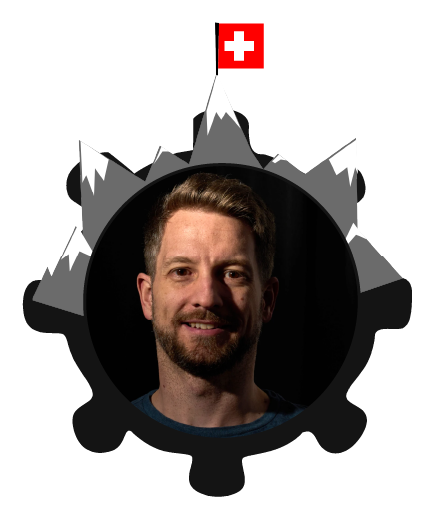 Michael is using Rust professionally since 2019, mostly in the context
of microcontrollers, industrial computers and back-end infrastructure.
His Rust based projects include breathing monitor, RFID tracking and a portable MRI scanner.
He taught his Python using colleagues at work how to program using Rust and also has a youtube channel where he tries to explain Rusts syntax and features.
Michael is using Rust professionally since 2019, mostly in the context
of microcontrollers, industrial computers and back-end infrastructure.
His Rust based projects include breathing monitor, RFID tracking and a portable MRI scanner.
He taught his Python using colleagues at work how to program using Rust and also has a youtube channel where he tries to explain Rusts syntax and features.Milica Kostic
Speaker for “Switching from C++ to RUST (from embedded devices perspective)”
I am an embedded software architect with a background in low-level C/C++ on bare metal, RTOS or embedded linux based platforms. I have experience in home automation and the medical industry. I am eager to learn and love new challenges. I am also passionate about helping establish a good team spirit and bringing agility. My latest passion is RUST, and I am actively working on enlarging the RUST community in my company.
Nicola Papale
Speaker for “PSA: You too can pack structs”
Swiss developer.
Discovered rust in 2015, absolutely despised it. Learned Haskell, tried rust again, and absolutely loved it.
Contributor to the bevy engine; Makes games using bevy, or bare metal; Helps clients build their rust projects; Helps people use bevy.
Niklas Korz
Speaker for “Interactive Exploration of Nonlinear Ray Casting with Rust and wgpu”
Co-Founder of alugha, the multilingual video platform from Germany. MSc graduate of Heidelberg University.
I love to switch between different application fields of computer science and software development. Among others, these include devops, cloud computing, distributed systems, web development, multimedia / video processing, graphics programming, mobile programming and game development. Most recently, I have been indulging in Nix, the functional programming language and package manager.
Ralf Jung
Speaker for “Miri: checking your unsafe code for Undefined Behavior”
Ralf Jung is an assistant professor for computer science at ETH Zurich. He began researching Rust in 2015, shortly after the 1.0 release. His PhD thesis, “Understanding and Evolving the Rust Programming Language”, was the first formalization of the core principles of safe and unsafe Rust, and has received multiple awards. He is maintainer of the Undefined Behavior detection tool Miri, frequent rustc contributor, lang team advisor, and t-opsem co-lead.
Simon Brummer
Speaker for “How to build a Linux Kernel Module in Rust? A brief introduction.”
Simon is working professionally with C/C++ code bases for more than 10 years, since 2016 he developed a keen interest in Rust. He participated in open source projects and published of a few smaller Rust crates on his own. He generally describes himself as a “professional amateur”.
Stefan Baumgartner
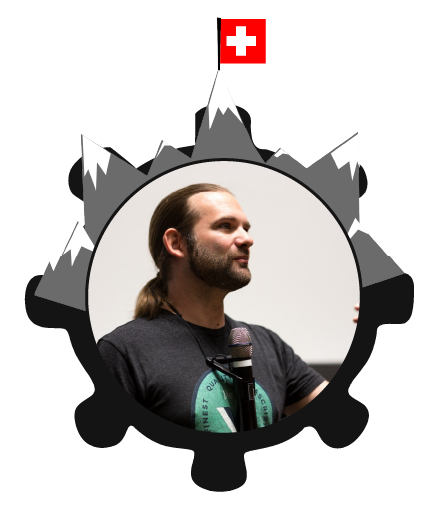 Stefan Baumgartner is an architect and developer based in Austria
who specializes in serverless technologies. He teaches Rust and TypeScript to companies at oida.dev
He has authored two books on TypeScript and is also the organizer of the Rust Linz meetup.
Stefan Baumgartner is an architect and developer based in Austria
who specializes in serverless technologies. He teaches Rust and TypeScript to companies at oida.dev
He has authored two books on TypeScript and is also the organizer of the Rust Linz meetup.Vytautas Astrauskas
Speaker for “Beyond Memory Safety”
Vytautas obtained his doctoral degree at ETH Zurich, where he, with colleagues, created Prusti, a tool for proving Rust programs correct.
